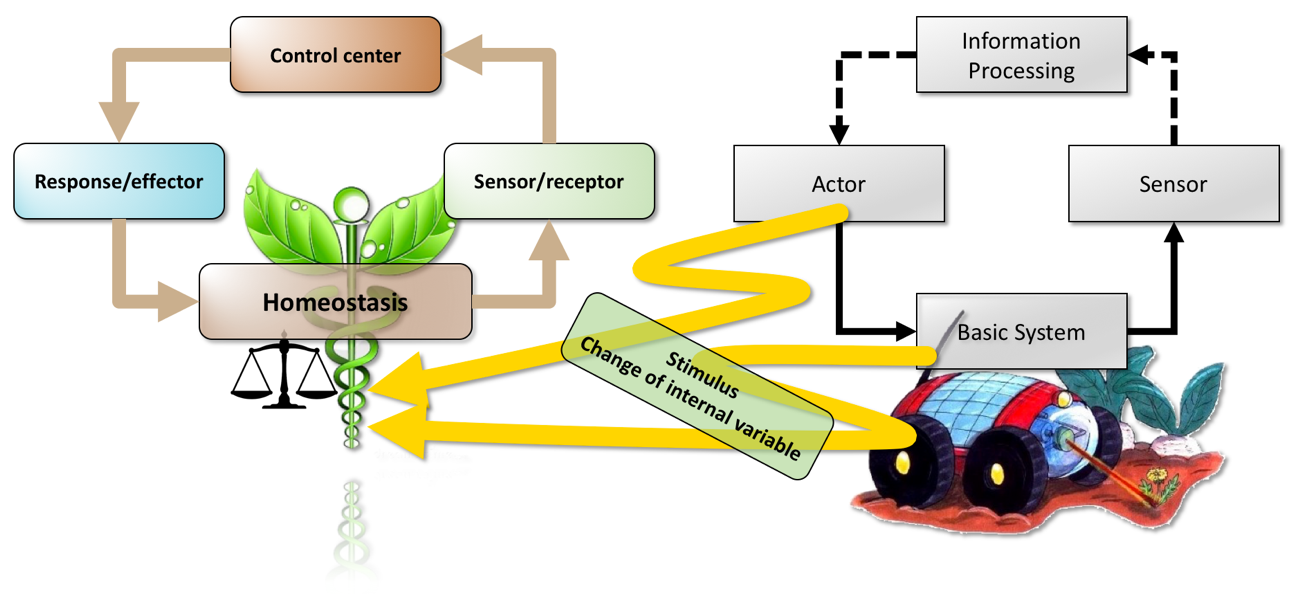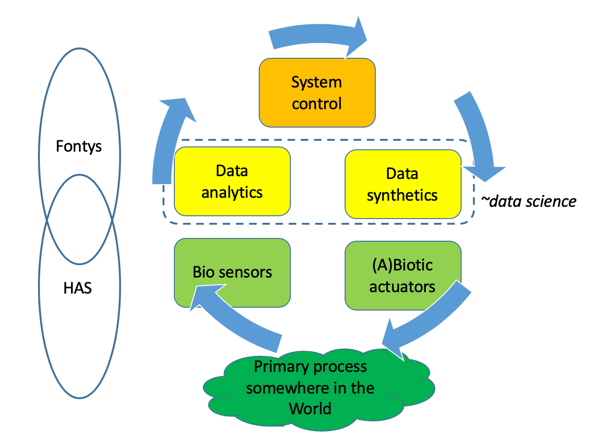
Content of the programme
Content of the programme
In this minor, students will make the connection between the world of biology, the world of technology and the world of business administration, see Figure 1. The still independent biological systems and the technical systems will be linked and influence each other with the aim of gaining more knowledge of the biological world on the one hand and making the biological world function more 'optimally' on the other hand.

Figure 1: Connection between the worlds
The most important themes for the supporting courses are indicated below. This is not exhaustive and the themes depend on project content and personal interest.
- Plant science - Physiology, anatomy, photosynthesis, anatomy and morphology, soil cultivation;
- Animal science - Physiology, anatomy, behaviour and nutrition and health;
- Bio sensor - Detecting the presence of chemicals on living organisms or biological molecules;
- (abiotic) Actuation - Optimising animal and plant health/welfare by any form of actuation;
- Data analytics - Big Data, Data Conversion, Data Clustering and Classification, hyperspectral, data intensive sensors/actuators, omics;
- Data synthetics - Big data, motor babbling, orchestration of multiple and possibly heterogeneous actuations (e.g. movement), data intensive actuators, omics;
- Ethics - Philosophy that deals with the critical reflection on the right actions;
- Machine vision - The camera as a sensor, image processing algorithms, recognition, exposure;
- Robotics - Field of robotics, types, species, kinematics, programming, tools;
- Systems engineering - Systems Engineering is a holistic and interdisciplinary approach/methodology to enable the realization of successful systems. The intended system integrates, among other things, the above-mentioned themes as links in a cyclical chain that aims to optimise the primary business process in the outside world, see Figure 2.

Figuur 2: Systems Engineering, connecting themes

